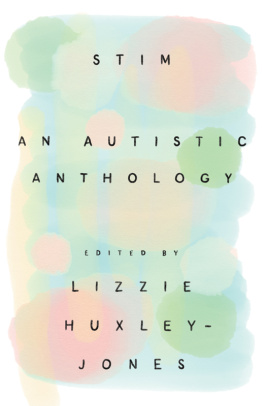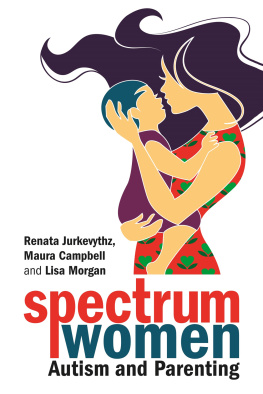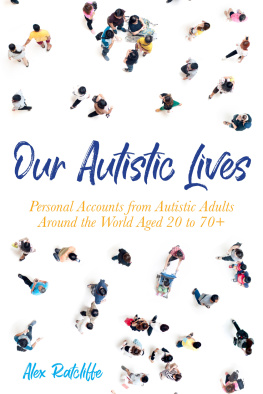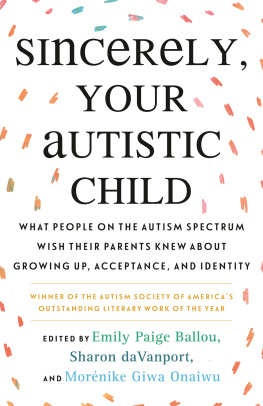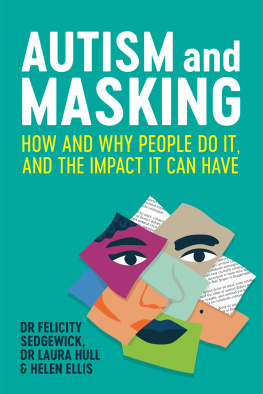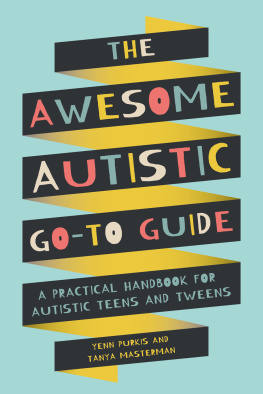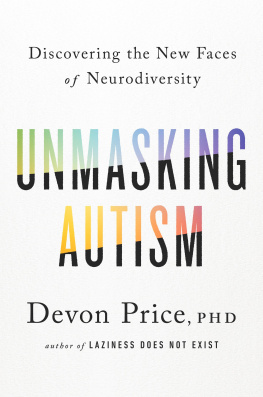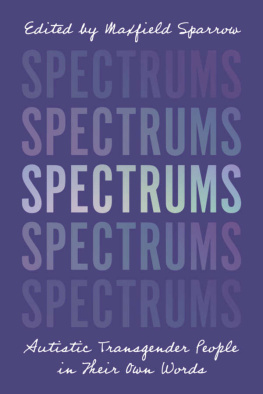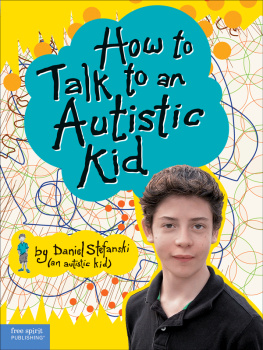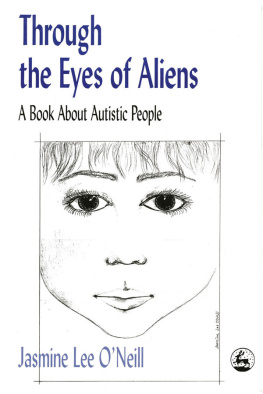Becoming Less
Robert Shepherd
Content note: Disordered eating, ableism, mental illness
I remember the day I first learned how few of us could live in a world without civilisation. I was fifteen at the time, listening to my biology teacher talk about things that had nothing to do with our exams. Without farming, hed said, the number of people in the UK would be unsettlingly low fewer than in a small city, more than in a large town. There would be about as many people as seals, because we were more or less the same size. And I remember feeling disconcerted by that, like Id never thought of a seal as the same kind of creature as me. And that was the start of it, I suppose: the idea that our species might have something in common, that wed have something useful to say to each other.
I wasnt very good at being a teenager, as my family would often tell me. People my age were supposed to sneak out and get drunk at night, while I would stay in reading books about biology. You should be rebelling against your parents! my mother used to say. I was always quick to point out how ironic that was.
I remember thinking that what I was doing was rebellion, in its way. At that time it felt like the whole world centred around what a young person should be and what that was did not resemble me at all. Staying in meant I was choosing what someone my age could be, whatever Id been told by other people. In that way, studying biology began to become a form of quiet rebellion.
In the part of Scotland where Im from, people once thought all the creatures on the land had their counterpart in the sea for example, the horse might be twinned with the seahorse, although it was probably more complicated than that. And like all the other creatures, we had our analogues: the seals, the people of the sea. That was why no one would eat a seal if they could avoid it, and it might have been why we told so many tales of them. They were us.
I told the selkie about that once. I remember she said we were flattering ourselves.
Evolution was what got me interested in biology. It wasnt so much the process that interested me, but the realisation of how much time had passed for the world. As a child Id known in a dim way that the earth was billions of years old, but reading that made me feel it: for the first time, I knew in my bones how small the human world really was.
I used that idea as a shield, I now realise. That sense of smallness can make it easier to block the world out, to ignore the billions of lives and experiences you dont quite know what to do with. You dont fit in, but your species doesnt either, so you shelter in your ignorance and call it a kind of wisdom. So I lived that way for the rest of my teenage years, convincing myself it was an intelligent thing to do.
Id been diagnosed with Aspergers syndrome at ten and undiagnosed at the same age. It was wrong to label children at that age, my family said, and wrong to condemn them. I grew up thinking of the things autism brought as obstacles to overcome: I should look people in the eyes, I should stop being so anxious, my interests should be more normal than they were. I was taught that I didnt have any kind of autism, and came to believe that any signs I did were in fact just personal failures. So it was in that frame of mind as a teenager that I thought I understood the reality of the world.
I dont remember what I thought when she told me she was a seal. I probably wasnt as disbelieving as I should have been. It was Freshers Week at Edinburgh University, and Id met so many people I didnt believe were real. Someone had gone to Eton; someone else turned out to be royalty. By the time I met her, being a seal would seem almost relatable.
She didnt look like a seal, of course; she looked like an eighteen-year-old woman. She wasnt obese or blotchy-skinned, unlike myself. She was thin and had black hair. She seemed perfectly normal. Selkies are very clever in that way. They know exactly how to pass as human beings, which at that point was a skill that I didnt share.
She did say something I remember: that seals think its a terrible disguise. Its so, so funny that were fooled, she said. I have a photo of her, and I still look at it sometimes. A part of me still believes Id be able to see.
She said I wouldnt understand where she was from, or why she was here. A starfish wouldnt understand what a chair was, she said, or much about the concept of accountancy. There was a whole human world that was closed to them. Why should it be any different when humans tried to comprehend the world of seals? She tried to explain, as an illustration, but it all seemed like nonsense to me.
I had a bad first week at university. I went on to have a bad first month, then a bad first year. But all that was still to come. Within the first hour of being dropped off at halls I was so anxious I threw up on someone, their food and myself. When I went to the toilets to clean up, I walked into the womens ones by mistake, where someone just looked at me, covered in sick and an inappropriate gender. They didnt seem shocked, or even sad. They looked like they knew they were part of someone elses story, one that didnt have a happy ending.
There were other reasons Id become so invested in evolution. As a child Id been told that the world was selfish and brutal, and that this was inevitable, unchangeable. In time, I became guilty for feeling love and compassion, like Darwin might come knocking on my door to tell me how this was wrong. So I began reading obsessively to try and find a justification for myself. If I could find a scientist who said that I should exist, I might begin to believe that I actually did.
Theres a story told by a famous evolutionary biologist about a time he went to a museum to see all the mammals in the world arranged by their relationship to each other. He was an experienced scientist; he knew that evolution isnt about one species being better than another. But he still found it unsettling to see how the chart was arranged people somewhere in the middle, and the seal at the end as the most evolved mammal of all. No matter who we are and what we know, it can be hard to see the world in a different way. The difference between me and him was that Ive never felt I belonged at the top.
If you dont have selective mutism, you might not know what it means. Its not a conscious choice that you make so that you dont speak. Its the feeling that the parts of your mind that handle speech are suddenly no longer there ; you open your mouth to say something and cant even make a sound. The longer I spent in halls without any human friends, the more I felt mutism come, and eventually it was normal that I was unable to speak at all.
I had friends outside university who, like me, were not seals in disguise. This was before the financial crisis, when the world seemed more hopeful than now, so a lot of us were doing subjects that didnt lead anywhere obvious, with the belief it would work out for us in the end. Wed always been told we were smart and wed always succeeded at school, so we were very assured of the quality of our brains.
Looking back, its hard for me not to draw a parallel between us and our species: always telling ourselves how very smart we were, to try and convince ourselves that wed not made a horrible mistake.
The selkie was always putting our species down, pointing out stupid things wed done. That might have been why we were friends, when I reflect on it. Ive always had very low self-esteem.
She lived in a tiny flat with five other people, and I went there a few times, when I felt able. It was there she showed me her seal skin for the first time.
Thats how they work, the selkies. When they want to come to the human world, they peel off their skin. Like all of them, hers was a full seals skin, soft on the outside and slimy when turned round. Huge, thick and heavy, stuffed haphazardly in a wardrobe. She lit a lot of incense to disguise the smell.

